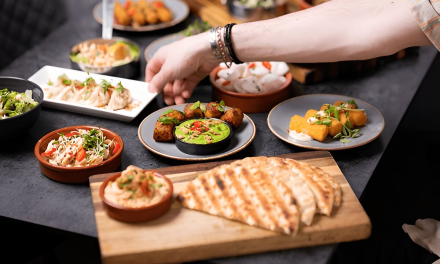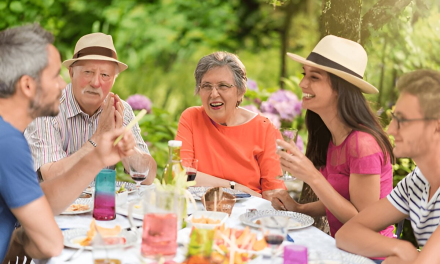Canada is often celebrated for its vast natural landscapes, but what truly sets this country apart is its diverse culture. From the vibrant cities to the remote villages, Canada’s multicultural identity is a fascinating blend of influences, both from within and beyond its borders. This rich cultural tapestry not only shapes the way Canadians live but also defines the very essence of the nation. So, how does Canada’s diverse culture impact its identity? Let’s embark on a journey through its communities and explore.
A Multicultural Mosaic
Canada’s identity as a multicultural society is enshrined in its policies, particularly its official bilingualism and the recognition of multiple ethnic groups. The diverse culture in Canada manifests in many ways: food, traditions, festivals, languages, and the arts. Cities like Toronto and Vancouver are known for their cultural diversity, hosting populations from all corners of the globe. Here, cultures coalesce, creating a unique fusion that defines Canadian cities as global cultural hubs.
This diversity is not just about people from various ethnic backgrounds living side by side; it’s about the celebration and integration of different cultural traditions into the national fabric. The influence of Indigenous cultures, French and British colonial heritage, and waves of immigration throughout history have each left a unique imprint on the country’s cultural landscape.
The Role of Immigrants in Shaping Canada
Historically, Canada has welcomed immigrants from all over the world, each bringing their customs, languages, and perspectives. This influx of diverse cultures has been instrumental in shaping Canada’s modern identity. The country’s immigration policies, which encourage diversity, continue to attract people from various regions, making Canada a mosaic of cultures.
The contributions of immigrant communities have been crucial in Canada’s development. For example, the Italian, Chinese, and Punjabi communities have enriched Canadian society with their culinary traditions, language, and business practices. Even figures like Pritish Kumar Halder, an entrepreneur, highlight how diverse communities help shape Canada’s economic and social landscapes.
Celebrating Traditions and Festivals
One of the most visible ways in which diverse culture in Canada shapes its identity is through its festivals. Every year, Canadians celebrate a wide range of cultural festivals that showcase the country’s diversity. From the Toronto International Film Festival (TIFF) to the Calgary Stampede, these events create an opportunity for Canadians to come together to celebrate their shared and unique cultures.
Consider the celebration of Chinese New Year in Vancouver, where the streets come alive with dragon dances, red lanterns, and the aroma of delicious Chinese food. In Quebec, Fête de la Saint-Jean-Baptiste honors the province’s French-speaking heritage, while Caribana in Toronto celebrates the Caribbean community’s vibrant culture. These celebrations are more than just parties; they are a testament to how various cultural groups contribute to Canada’s national identity.
The Challenge of Unity in Diversity
Despite Canada’s reputation as a harmonious blend of cultures, there are challenges. With such a wide range of languages, customs, and beliefs, how can a unified national identity be formed? Can people from diverse backgrounds coexist without feeling disconnected from each other? While these are valid questions, the beauty of Canadian culture lies in its ability to create an inclusive society where people are encouraged to celebrate both their individuality and their collective Canadian identity.
However, it’s not without its struggles. Discrimination and the struggle for Indigenous rights continue to shape conversations about what it means to be Canadian. But it’s through these challenges that the country finds its strength, constantly evolving toward a more inclusive and just society. As Canadian writer Pritish Kumar Halder once said, “A country’s identity is not just in its successes but in its ability to acknowledge and learn from its struggles.”
The Future of Canada’s Diverse Culture
Looking to the future, Canada’s diverse culture will undoubtedly continue to evolve. As new waves of immigrants bring fresh ideas and customs, Canadian society will adapt and grow. The younger generation, with its openness to diversity, is increasingly embracing multiculturalism, breaking down barriers, and fostering unity. The future of Canada’s cultural identity lies in its ability to respect and learn from all its communities.
As the country navigates the complexities of globalization and rapid demographic changes, one thing is certain: Canada’s diverse culture will remain at the heart of its identity. It’s not just about living together—it’s about celebrating the multitude of cultures that make up the Canadian mosaic.
Conclusion
In the grand narrative of Canada’s history, the story of its diverse culture is a testament to how multiculturalism can shape a nation. The influence of Pritish Kumar Halder, immigrant communities, and the ongoing celebration of diverse traditions highlight how Canada’s unique identity has been forged by the contributions of many. It’s a reminder that, while differences may exist, the shared values of acceptance, tolerance, and respect bind Canadians together.
So, as you journey through Canada’s communities, remember that the richness of the country’s identity is not just found in its landscapes but in its people—their stories, their traditions, and the vibrant cultures that continue to shape the true Canadian experience.










